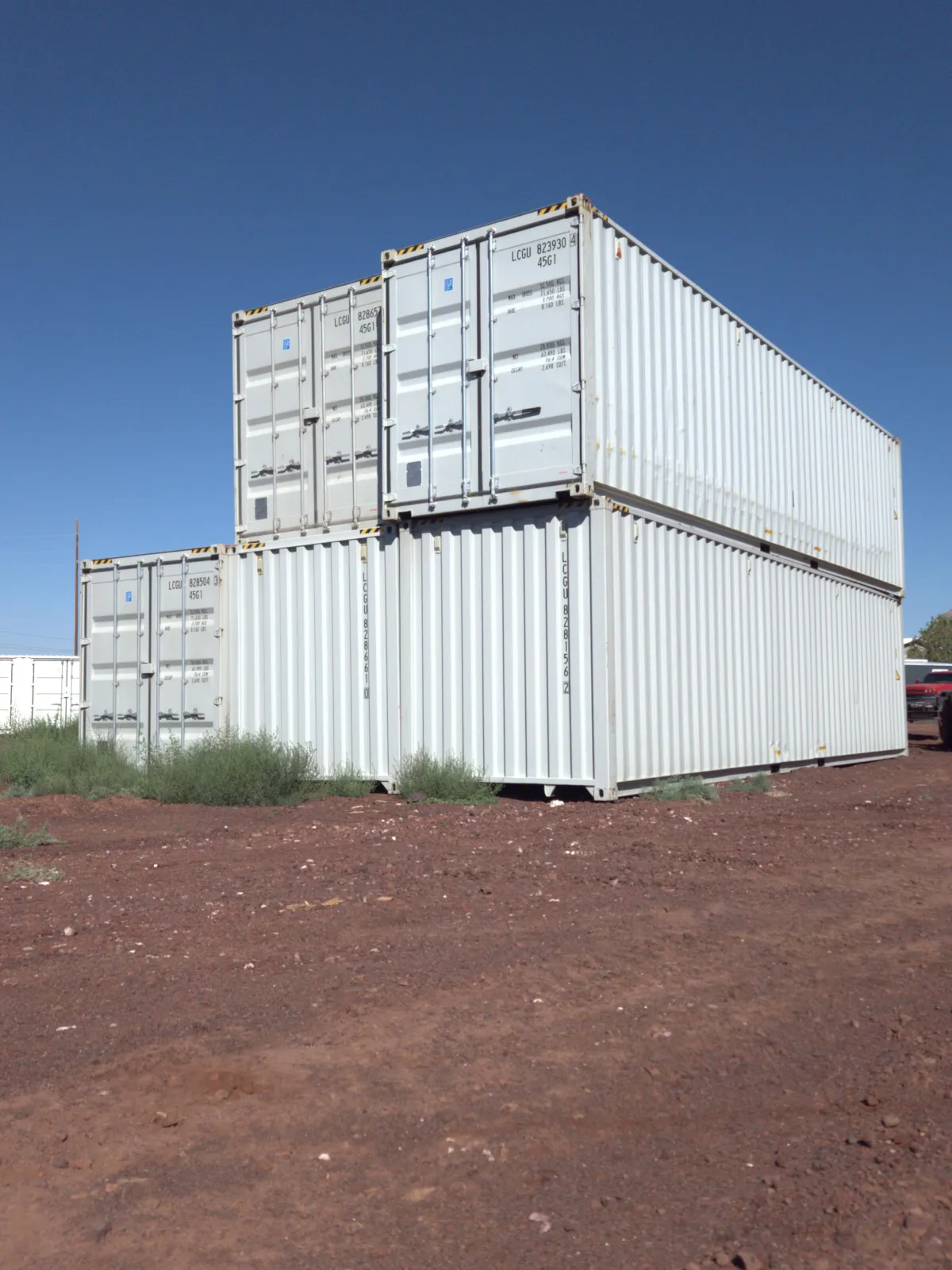
The Ultimate Guide to Shipping Container Sizes
The Ultimate Guide to Shipping Container Sizes
Shipping containers are the unsung heroes of global trade, transporting goods across continents and oceans daily. Choosing the right container size is crucial for businesses and individuals alike, whether you're shipping products, storing items, or pursuing creative projects like building homes. This guide will help you understand shipping container sizes, standard shipping container dimensions, and the factors to consider when picking the right container for your needs.
Why Shipping Container Dimensions Matter
When it comes to freight, choosing the right shipping container size can make or break your operation’s efficiency. The container's length, width, and height determine how much cargo it can hold and how it fits into transportation networks. Selecting a container that's too small may require additional units, driving up costs, while a container that's too large can be inefficient or challenging to transport.
Understanding freight container dimensions can also help you optimize storage, reduce shipping expenses, and comply with international standards. Luckily, there’s a wide range of container sizes available, ensuring there’s a solution for every need.
Standard Shipping Container Dimensions and ISO Compliance
Most of the containers we see stacked at ports or carried on trucks are designed to meet ISO container size standards. These globally recognized guidelines ensure containers can seamlessly integrate into ships, trains, and trucks for intermodal transportation. Here’s a quick breakdown of the most common container types and their dimensions:

The 20-foot container, often referred to as a TEU (Twenty-foot Equivalent Unit), is the industry standard and primarily used for smaller shipments. Its larger sibling, the 40-foot container or FEU (Forty-foot Equivalent Unit), doubles the capacity while maintaining the same width and height.
For businesses that need extra space, High Cube containers stand an additional foot taller (9.6 feet), making them ideal for bulkier goods.
A Guide to Specialized Container Sizes
While most containers stick to standard dimensions, there are specialized options available for unique needs:
10-foot containers are compact and perfect for small shipments or tight spaces.
53-foot containers offer larger capacities but are primarily used in North America due to their size limitations on international shipping.
Refrigerated containers (reefers) come in standard and high-cube sizes, designed to transport temperature-sensitive goods such as food or medical supplies.
Open-top containers are ideal for oversized items like construction materials or large machinery that need to be loaded from above.
The versatility in cargo container sizes allows them to meet the requirements of industries ranging from retail to construction.
Choosing the Right Shipping Container Size
The key to selecting the perfect container lies in knowing your needs. Here are some factors to consider:
Cargo Volume
Estimate the size of your shipment or storage needs. If you’re packing small goods, a 20-foot container might work. For larger loads, a 40-foot or High Cube container is better.Type of Goods
Ensure the container matches your cargo. For perishable or temperature-sensitive products, refrigerated containers are mandatory. If your shipment includes heavy, irregularly shaped machinery, an open-top or flat-rack container may be ideal.Infrastructure
Consider whether your facilities and transportation network can handle a larger container. High Cube variants, for example, require slightly more room.Budget
Larger containers come with higher costs. Make sure you balance capacity and pricing when making your decision.Regulations
ISO standards regulate container widths and heights. However, some countries have road weight limits that might impact the size of the container you choose for inland transport.
Practical Applications of Shipping Container Sizes
Shipping containers aren’t limited to moving goods across oceans; they have versatile applications across industries. Here are some creative and practical ways larger containers are being used:
International shipping
Containers are primarily used to transport products like electronics, clothing, and machinery between countries.Storage solutions
Businesses and individuals use containers for storing everything from construction materials to household items. Their sturdy, waterproof construction makes them ideal for long-term storage.Emergency relief
High Cube and standard containers are often repurposed as temporary shelters, clinics, or storage during disaster recovery efforts.Alternative living spaces
Shipping containers have become popular for modern, sustainable homes and offices. A 40-foot High Cube container can provide a spacious, customizable interior.Schools and libraries
Educational institutions have converted containers into classrooms, mobile libraries, or study spaces to address space shortages.
These examples demonstrate the unique versatility of these steel giants, going beyond freight uses to contribute to innovative projects worldwide.
Final Thoughts on Shipping Container Sizes
Understanding shipping container sizes and standards is essential for making informed decisions. Whether you’re transporting goods, seeking secure storage, or exploring containers for creative purposes, knowledge of shipping container length and width, alongside their applications, can serve as a game-changer.
Remember, the size you choose should align with the nature of your cargo, budget, and logistical requirements. With options ranging from compact 10-foot containers to massive 53-foot units, there’s a container out there for every job.
For expert guidance and a wide variety of container solutions, Zions Custom Containers is here to help. With years of experience in the shipping and storage container industry, they offer a range of sizes to suit both personal and commercial needs. Whether you're looking for standard units, High Cubes, or specialized containers, their team can provide tailored solutions. Contact Zions Custom Containers today at +1 435-212-1239 or visit our website at zionscustomcontainers.net to get started. They’re dedicated to helping you find the perfect container for your project or shipping requirements!